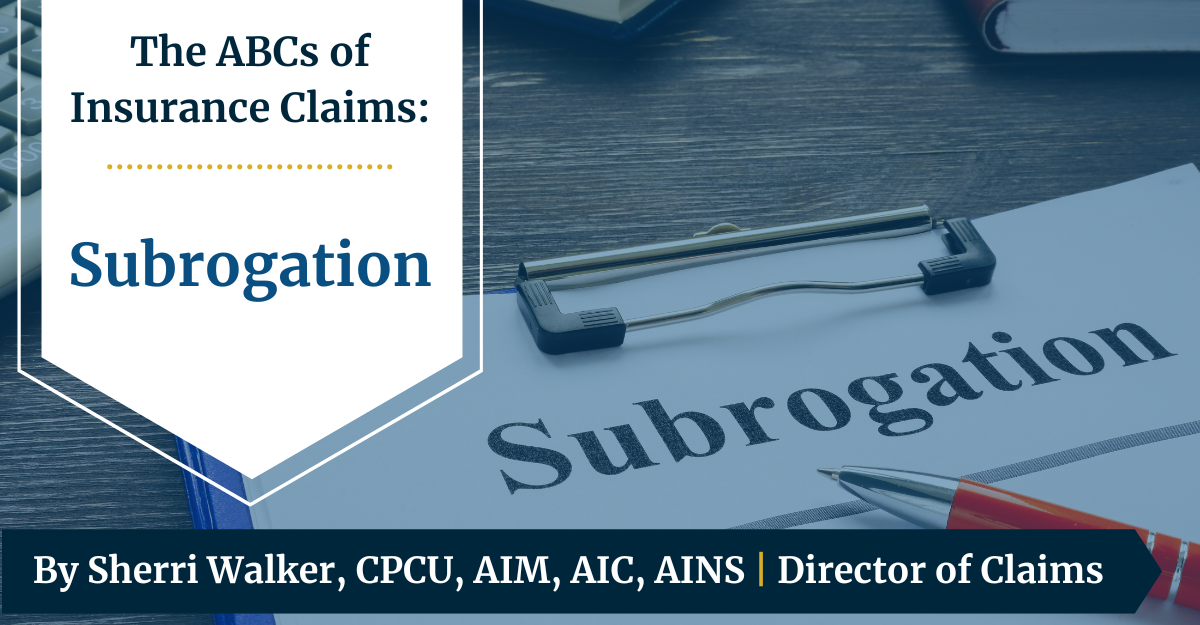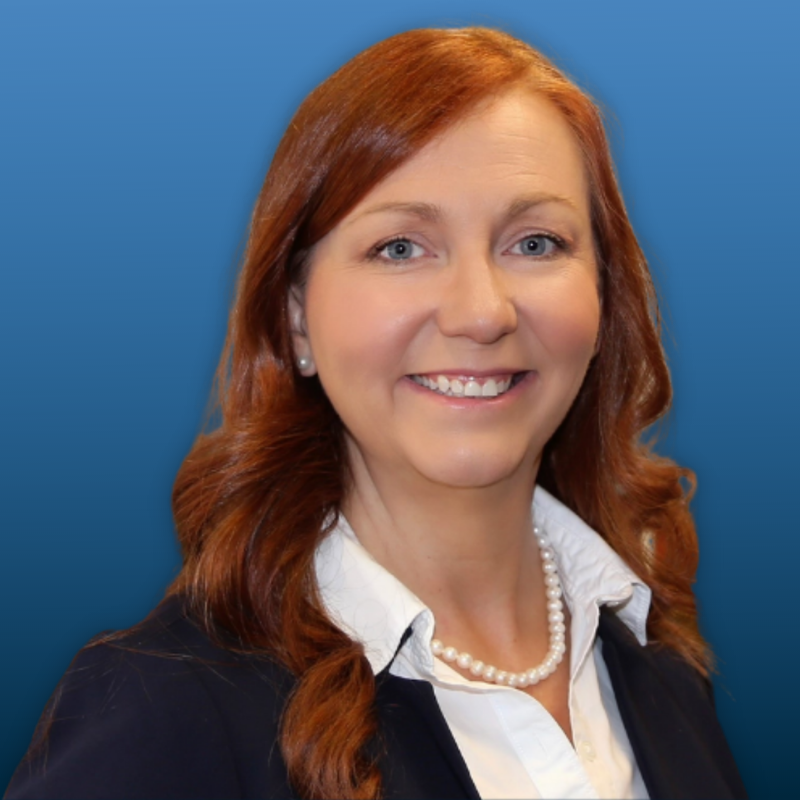Welcome to the ABCs of Insurance Claims. Over the next few months, Sherri Walker, Sentinel’s Director of Claims will address an aspect of claims handling for every letter of the alphabet to help provide a better understanding of the claims process.
Subrogation
Let’s be real, for most people, dealing with an insurance carrier is about as much fun as being dipped in honey and rolled in fire ants. Imagine being stuck in an automated phone system, continuously trying to get to a real person, and then experiencing a slew of insurance jargon across the phone line when someone finally does answer… These are not fun things to deal with any time, but especially when you’re dealing with a claims situation that isn’t your fault; like your car being hit by another party or that leaking pipe that simply wasn’t tightened enough by the plumber you had in yesterday.
While dealing with an insurance issue is hard enough to do when you’re talking to your own carrier, dealing with a third-party’s insurance carrier can often be even more stressful. There are usually delays as they attempt to reach their policyholder and complete an investigation to determine next steps. If you have a minor damage, like a dented bumper cover, you may be able to wait for the process to play out, but if your car is not drivable or you have a floor full of water, time is of the essence.
In those situations, it may make more sense to turn to your own carrier and let them handle your claim on the front side. That doesn’t mean that the at fault party’s coverage won’t be involved. In insurance, there is an action known as Subrogation – commonly referred to as Subro or just Sub, which comes into play in these scenarios. Subrogation allows your insurance carrier to take care of you in the here and now, and then pursue the responsible party’s carrier for what they have paid out on your behalf. Although this may sound desirable, there are some things you should know about choosing to go this route. In this blog we will delve into the pros and cons of Subrogation.
THE GOOD
There are some benefits to filing the initial claim through your own carrier. For starters, you may have better coverage on your own policy than the at fault party carries. For example, if your brand-new vehicle is a total loss, you may have opted to take Replacement Cost Coverage when you originally added the vehicle to your policy. Your policy would pay for the replacement of your vehicle with the same year, make, model and trim level that you purchased, and typically even includes the dealer fees and registration costs.
Additionally, if the at fault party who hit you only has minimum limits of insurance, they may not have enough coverage to pay even the depreciated value of your vehicle if it is a total loss or if there were multiple vehicles involved.
In the case of that water damage from the untightened pipe, your policy may have RCV, or Replacement Cost Valuation settlement instead of the ACV, or Actual Cost Valuation that the plumber’s General Liability coverage would provide. That means that even if the plumber’s policy responds up front, you may still be left holding a portion of the bill based on the depreciation assessed whereas under your policy they would pay a higher amount.
THE BAD
The downside of going through your own policy is that often, you have a deductible on your own coverage that you will have to be responsible for up front. As a general rule, when your carrier is able to recover from the at fault carrier, that deductible will be reimbursed to you from the first monies collected.
This can be a lengthy process however, and you should not anticipate seeing that money back quickly – it can often take months for the recovery process to even begin, let alone be brought to conclusion. Why? The damages must be resolved prior to your carrier sending that demand, and in cases of total loss vehicles, the salvage must process as well.
THE UGLY
So, what happens if your insurance carrier has paid your claim and started the process of subrogation and the other carrier either doesn’t believe that they owe for the damages, or that they owe for a much lesser amount than what was paid? Enter Arbitration.
Many mainline carriers belong to an organization known as Arbitration Forums. Membership in this organization means that when there is a dispute, each carrier will agree to submit their own documentation regarding the details as to why they believe the other is at fault (or not) and why the damages have been paid at the price they were, or why they should have been less. These files are then reviewed by a panelist, usually an unbiased party who works within the industry and is familiar with the laws and regulations governing liability and damages. That panelist will make a binding determination on the file, and both carriers must adhere.
So why is this the ugly? Because sometimes, even if a liability claim feels like a slam dunk, there is a chance that recovery may not happen. And in those instances, any deductible that you have paid out cannot and will not be reimbursed. You should be aware that when you use your own coverage, there is ALWAYS a potential that you will be out that portion of the loss.
Safeguarding Your Success
Although we would love for our clients to never experience a loss or need to file a claim, we know that life happens and there may be times that our best advice will be to file under your own policy. Our claims team is here to help you decide what the best course of action is to return you to life as normal. At Sentinel, we will strive to Safeguard Your Success and make sure your claims service is never “Sub”-par!


